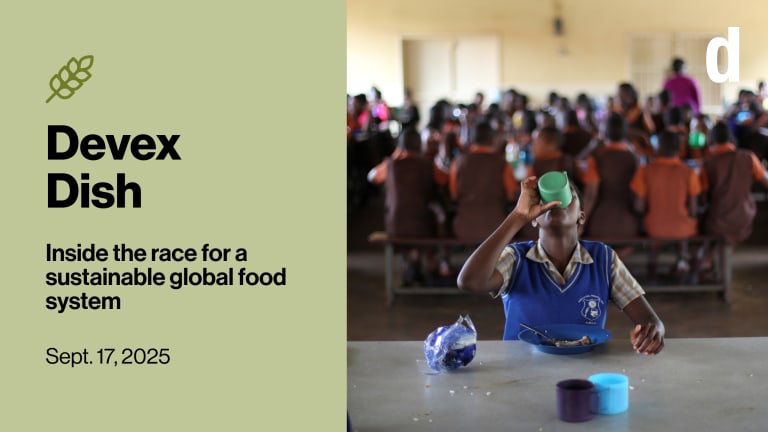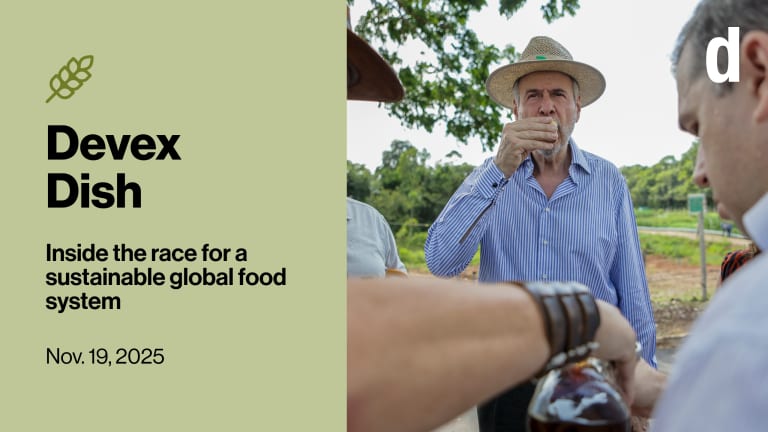We’ve been following the disaster that is the pause of food aid in Ethiopia ever since the World Food Programme and USAID abruptly announced they’d cease providing lifesaving rations to people in the country earlier this year. That came after they discovered widespread “diversion” — aka theft — of food supplies, which were found being sold on the commercial market, instead of reaching the people they were meant for.
You’ll remember that WFP Executive Director Cindy McCain told me in July that the agency discovered the theft too late and should have ceased operations in the country much sooner. Now, my colleague Colum Lynch along with Devex contributor Elissa Miolene provide us the 50,000-foot view of the situation, with vital context about the complexities of aid distribution in Ethiopia. They found that the U.S. government’s knowledge of humanitarian aid theft in the country goes back to at least 1985.
A quick refresh of the current situation: Earlier this year, WFP and USAID found more than 7,000 metric tons of stolen wheat and 215,000 liters of food oil in commercial markets in Tigray. By June, USAID had visited refugee camps, village markets, and 63 flour mills throughout Ethiopia, finding various levels of theft at each location, a USAID spokesperson says.
Search for articles
Most Read
- 1
- 2
- 3
- 4
- 5








